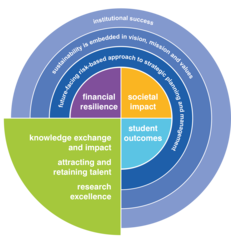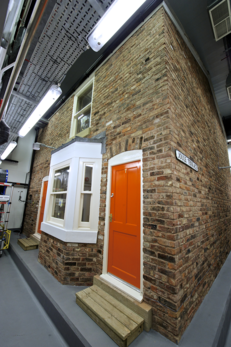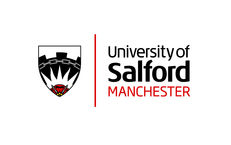A Guide for Members of Governing Bodies – Research and Innovation
Research outcomes, income and profile are critical to the positioning of many higher education institutions.
Universities that prioritise sustainability are better placed to build research partnerships, respond to funding priorities and deliver research with impact because sustainability, and its relationship with research and teaching, is of growing importance to stakeholders – including government, business and the third sector.
Funders are increasingly looking to understand, and address, global societal challenges through research and innovation in the knowledge economy.
The Research Excellence Framework (REF) incentivises institutions to demonstrate impact on sustainable development, by explicitly assessing impact on society, economy, culture, environment, health and quality of life. The Sustainable Development Goals provide a globally acknowledged framework for institutions to realise that impact and are of increasing interest to UK Research Councils and philanthropy efforts.
Sustainability is a key selling point when seeking to attract and retain talented people. There is growing evidence that people want to work for companies that integrate sustainability into their values and business – particularly millennial employees.(15)
Embracing sustainable technologies and improving the sustainability of estate operations also provides an opportunity to generate research income, by using the university as a Living Lab for testing and refining solutions to sustainability issues in a real-world setting.
(15) Harvard Business Review (2013) Sustainability Matters in the Battle for Talent: hbr.org/2013/05/sustainability-matters-in-the
Questions a governor might explore:
- Are we undertaking impactful research that delivers on societal challenges?
- Can we show links between our research and teaching so we are ready for the TEF and REF?
- How sustainable is the infrastructure which supports our knowledge and innovation activities?
- Can we secure new sources of income by going into partnership with others for key sustainability projects?
University of Salford – Salford Energy House and Smart Meters Lab
Domestic energy accounts for more than 25% of UK energy consumption and is becoming increasingly technologically complex. To respond to this the Salford Energy House, a whole house built in a lab under user-controlled conditions, has expanded its work from energy efficiency into energy systems where these technologies are linked and tested. In addition, the ‘Smart Meters>Smart Homes’ Lab looks at how smart meters technology can support an increasingly complex energy system. The Salford Energy House team have worked with more than 500 companies and have attracted commercial income and grants of more than £5m since they were established in 2010. (16)
(16) University of Salford - Energy House








 Except where otherwise stated, content on this site is
licensed under a Creative Commons Attribution 3.0 License.
Except where otherwise stated, content on this site is
licensed under a Creative Commons Attribution 3.0 License.
